#Economics Dissertation Help
Explore tagged Tumblr posts
Text
Uncover the key strategies and techniques for creating an outstanding economics dissertation with our in-depth guide. Delve into a wealth of valuable tips, receive expert advice, and master practical strategies to elevate your writing journey and achieve excellence in your academic work.
#techniques for creating an outstanding economics dissertation#Economics Dissertation#Economics Dissertation Help#Economics Dissertation Writing#Assignment help#assignment expert
0 notes
Text
Greetings. In the midst of this disheartening academic labyrinth, I seek your solace and counsel.
My pursuit revolves around the desolate realms of international and financial economics, a domain veiled in obscurity. Alas, I yearn for a topic ensconced in the gloom of uncharted territories, where secondary data is but a dim glimmer. This melancholic quest seeks the embodiment of uniqueness, as existing paths lay shrouded in repetitiveness.
Should you harbor insights that pierce the darkness and unearth untrodden paths, I beseech you to cast them upon this forlorn page. Your wisdom could cast a feeble light on this dreary path, guiding me toward a desolate but unexplored research niche. Eternally grateful for your somber companionship on this academic odyssey.
#mine: text#bpd#college#i hate exams#dark academia#AcademicDesolation#ResearchDepths#EconomicGloom#Economics#studyblr#dissertation#identity crisis#academic writing#dissertation writing#assignments#assignment help#assignment writing service#research
7 notes
·
View notes
Text
207 Best Accounting Dissertation Topics & Ideas
Before you seek assignment help for students online, here is your comprehensive guide on 207 best accounting dissertation topics that can help you to create impactful dissertation...
Learn more: https://www.thewritesmarter.com/blog/best-accounting-dissertation-topics-ideas/
#assignment help for students#Economics Dissertation Topics#accounting assignment help#assignment writing help#assignment services#assignment writing service#programming assignment help
0 notes
Text
i had to read and reread so much of marx's writing for my dissertation and i did not find it particularly fun nor at all easy. economic and philosophic manuscripts of 1844 is about as dense as it gets and i complained about it at length while i was reading it and found it often times extraordinarily hard to wrap my brain around and the things that i did to further my understanding of the material that i was not initially understanding involved 1) reading the text multiple times 2) talking to people about it and 3) reading rigorous academic critiques and responses to it. what i did not do was go onto genius dot com and pretend that reading random internet annotations would be a reasonable substitute for parsing the text itself or engaging with other academic analyses. hope this helps!
789 notes
·
View notes
Text
Finishing my dissertation so I've been super busy, fundraiser is still going though! Some designs (for shirts, stickers, mugs, pins, etc):





















As always EVERYTHING I EARN from my shop is for my best friend, a Palestinian grad student living in America. The money is sent home to support his friends and family in Palestine and around the rest of the Levant who are being hurt directly and/or financially by the attacks on Gaza, the raids and economic devastation in the West Bank (it's gotten extremely bad there) and the collateral damage in surrounding countries.
You can find all of my work in my shop HERE. You can filter by product with the menu on the left side of the page or go here to browse by design. Here's a couple examples of designs printed on products:









The model for the gym shirt in photo 3 is the friend I am raising money for (cropped for privacy).
This is not end to grad school we imagined. I'm so proud of my friend for how he's handling everything though. Still doing his activism in the face of all the government threats, and still doing incredible research despite all the setbacks. He's the strongest person I've ever known.
Thank you so much to everyone who has helped out! The support means a lot to us, we hope you are enjoying your purchases.
#palestine#free palestine#gaza#free gaza#art for palestine#artists for palestine#artists on tumblr#art fundraiser#gaza strip#fundraiser shop#save palestine#ceasefire#فلسطين#فلسطين حرة#palestinian genocide#fundraising#pins#stickers#sticker shop#palestine fundraiser
27 notes
·
View notes
Text

The Mysteriously Brilliant Student.
—————————————————————————
Night Raven Colle Leaders x R.femele
—————————————————————————
Everyone thought you were just an adorable girl, kind of flying, who kept forgetting the books and making silly jokes. Until, by accident (or loving curiosity), they see your school record.
Not only are your grades absurdly high (A++ in everything), but your works have deep analysis, elegant writing and you still volunteer, cultural events and help the school administration in secret.
And that's when they run out of ground.
—————————————————————————
.
.
Riddle Rosehearts (Heartslabyul)
Riddle always gave you little affectionate scolding for forgetting the time or missing a quote from the rules.
Until, reviewing the bulletins for the next ceremony, he comes across your name... at the top of the overall ranking.
"What?! The first place?!”
He turns pale.
"But she... confused Plato with Pokémon last week!"
When he finds you, you're blowing soap bubbles in the garden.
"Have you... fooled me all this time?"
You smile innocently:
"Uhé, you never asked how good I was writing 20-page essays on political philosophy."
Riddle shes deeply.
"So... do you mean you're perfect? ...Damn, now I feel doubly in love."
⸻ ————————————
Leona Kingscholar (Savanaclaw)
Leona always thought you were cute, but lazy. Like someone who took C+ and forgot he had proof.
Until he saw his history and crashed.
"This girl... takes A++ in everything?!"
He frowns.
"Is this some kind of provocation? So brilliant and acts as if he doesn't know how to do the head?"
He stares at you later, arms crossed.
"How many years have you been hiding behind this innocent little way, huh?"
You:
"Since I realized that it's fun to see the pride of others dismount when they find out."
Leona laughs, pulls you to her lap:
"You are the definition of camouflaged danger... my favorite type."
⸻ ————————————
Ashengrotto Blue (Octavinelle)
Azul thought you were distracted and terrible for business, until he found a report you wrote about applied magical economics. With unprecedented theories.
"This... this analysis... did she even understand the concept of temporal compound interest?! And why are you here... with little stars drawn in the corner?!”
He stares at you, disconcerted:
"Are you a genius disguised as a cheerful fool?"
You, chewing a cupcake:
"It's just that if I look very smart, no one gives me candy."
Blue chokes.
"Wedding. Now."
⸻ ————————————
Vil Schoenheit (Pomefiore)
Vil thought you were dedicated to aesthetics, but a little disconnected from the academic part. Until seeing his dissertation on philosophical aesthetics in classical literature.
He holds the paper as if it were a jewel.
"Did you write that?"
"Uhum. I finished while waiting for my hair tonic to dry."
Vil blinks slowly, as if he were facing a miracle.
"You... are you smart, beautiful, kind and still do volunteer work? Why isn't it reigning in a palace?"
You:
"Because I prefer to stay here... with my king of beauty."
Vil smiles, enchanted:
"You are my hidden masterpiece."
⸻ ————————————
Idia Shroud (Ignihyde)
Idia thought you were the type to confuse USB with a cookie. Until you saw that you are a medalist in logic, cryptography olympiads and still write essays about AI.
"E-She is an S+ in mathematics, literature, psychology... and helps in magical literacy programs! Is this a bug in reality?! An NPC with cheat codes?!”
You appear soon after, offering a cookie decorated with emoji faces.
"Look, I made this one thinking of you!"
Idia is shaking.
"You're like... the secret protagonist of the anime. I'm just the lucky NPC who became the boyfriend."
You laugh and kiss him on the forehead.
"My favorite NPC."
⸻ ————————————
Malleus Draconia (Diasomnia)
Malleus already thought you were mysterious and intriguing... but when he saw that you give lectures in smaller magical schools, write essays on draconic history and lead social actions in remote villages...
"She... is a queen hidden among plebeians?"
He finds you looking at the clouds, making drawings with the wand in the air.
"My dear, why didn't you ever tell me?"
"I like to be just 'your distracted girl' when I'm with you. But the world needs my other version too."
He smiles, touching his hand.
"So I'll be proud to share you with the world... but your heart, that's only mine."
⸻ ————————————
Kalim Al-Asim (Scarabia)
Kalim always loved you - she thought you were fun, funny and full of energy, but she never took you very seriously in class. Once you confused "elementary physics" with "elementary party", and he thought it was hilarious.
But then, one day, he accidentally picks up one of his jobs in the hallway... and freezes. It's a perfect essay about ancestral magic, with historical references, impeccable writing and... signed by you.
"WHAT?! Did she write that?!”
He runs to Jamil with the paper in his hand.
"Look at this! She's a genius!! A real genius!!!”
Later, he finds you in the garden, singing alone with birds and trying to balance an apple on his head.
"You're too amazing! Why didn't you ever tell me you were so smart?"
You smile, shrugging your shoulders:
"I thought it was more fun to let you find out like that."
He hugs you tight, spinning in the air with you.
"You're brilliant, funny, sweet, beautiful... Are you sure you want to be with a guy like me?"
You kiss his cheek:
"Of course. You are my sun... and even geniuses need warmth."
He laughs, drened and in love:
"So let's conquer the world together! But first... let's have a party in his honor!"
—————————————————————————

#twisted oc#twisted wonderland#twst shrouds#twisted wonderland jp#twst manga#twisted wonderland x reader#disney twisted wonderland#twst
51 notes
·
View notes
Note
I’m interested in history, but only in a very narrow area of history (the modern history of amusement parks and related amusement venues). I don’t think this makes me a good candidate for going into an actual history degree, but I’d really like to know more about how to research and interpret history (and maybe one day know enough to publish a book or something) - is there anywhere in particular I could go to learn?
Apologies for the delay, but I was contemplating how to answer this. I want to explain this the same way I would if you were a student asking me why I am doing a graduate degree.
The first thing I'd say is that history as a discipline is full of specialists. We all have the one thing we are really the most interested in. That's how it works in graduate school: you produce work on something very specific.
My dissertation, for example, is about one guy (and through him, his politics and social circles and diplomatic connections). And this is true one way or another of everyone in my PhD program.
That's not to say you need a history degree to write the history of the specific thing you like. People publish with non-academic presses without degrees all the time.
However.....
One of the big problems with amateur history that always stands out to me as a trained historian is lack of context. People write books about specific things or specific people without tying it to bigger developments because they don't have the broad knowledge base to do that.
The reason that training as a historian moves from the broad to the specific is that it allows us to have a workable knowledge of the period and the themes. That allows us to write well-grounded books.
For example, I'm writing about one guy but I've read extensively about the whole century he lived in so I can properly situate and contextualize him.
Even if you don't want to do a history degree, I would encourage you to think about which broad ideas you want to engage with (like, for example, the social changes that normalized public entertainment, the technological changes that create amusement parks, or the economic conditions necessary for people to have enough spare income for entertainment, etc.) and to read extensively about them. If there are books you like, read their citations and then read the books they read. Search libraries or databases (if you have access) for new works on these questions.
A history degree helps with this because it provides structure. But you can also figure it out on your own.
21 notes
·
View notes
Text
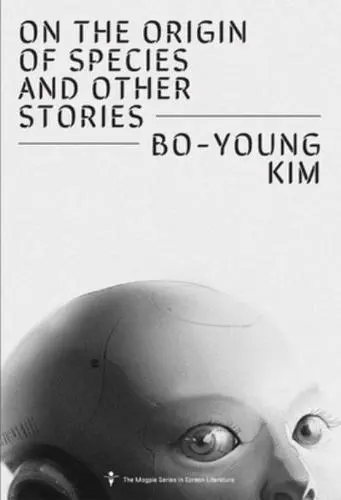
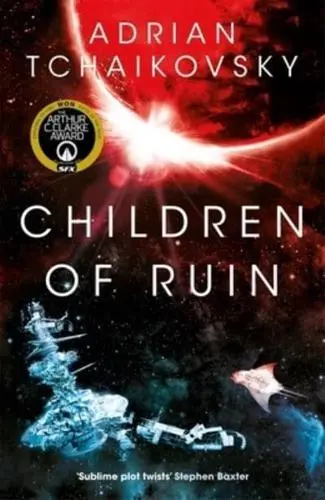
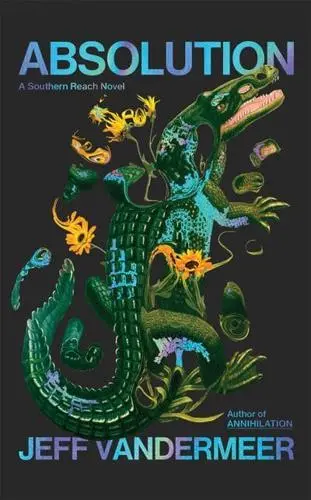
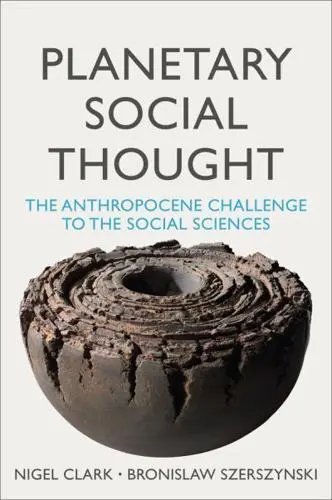
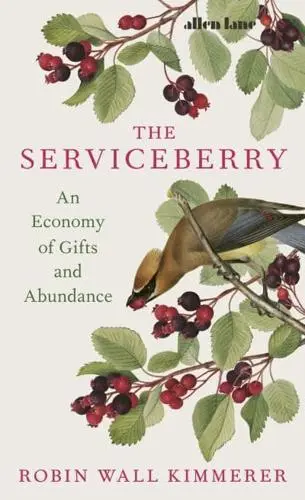
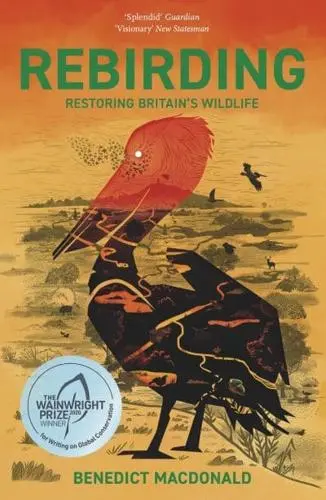
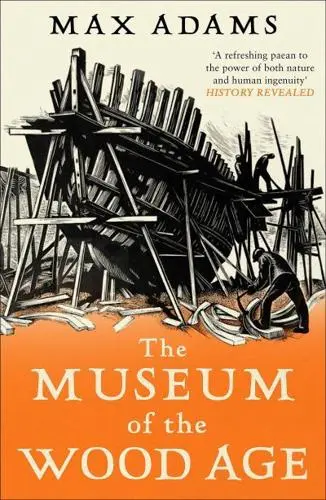
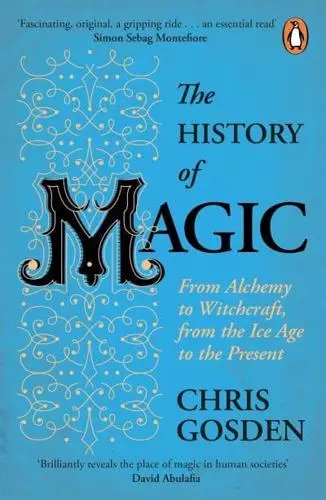
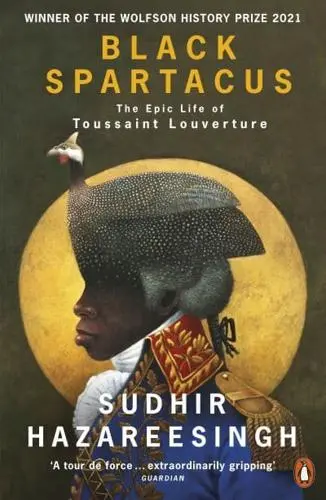
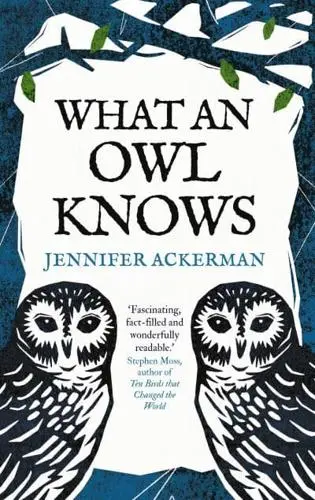
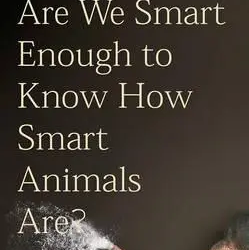
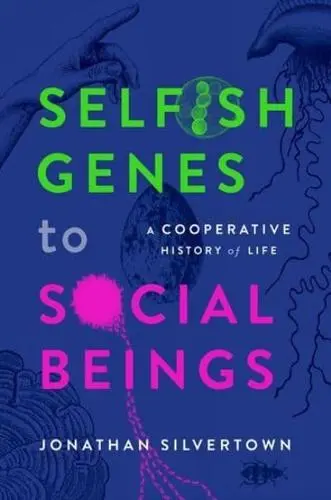
@astriiformes tagged me to post about the books I have on my to-be-read list for 2025, and I promised myself I'd get through at least twelve of them, so here's a selection of the "at least twelve" I want to get through. I'm a habitual non-fiction reader because when I was 12 I hated everything "written for twelve year olds" and switched my focus to pop science (and to a lesser extent history) instead, so I am, consequently, much better at judging and picking up quality non-fiction than I am finding and reading fiction. I'm trying to spice it up by adding some (science...) fiction to the list this year, as I did last year.
I'm currently reading the very last one, Selfish Genes to Social Beings, and am hoping (in vain?) to get it done before I get back to university on Sunday. Currently stalling on chapter 6 of 13-or-so, so probably not. (It doesn't help that like...see...I've been to the optician four times in the past three weeks...and I've come away with a new prescription three of those times, with more on the way...and on top of all that, I have a "dissertation to draft" or something. It's hard.) It's very readable, though, I'd recommend it.
Tagging: @magiefish, @t4tbruharvey, @specialagentartemis and...whoever else I've interacted with who has a long list of things to read on their plate.
Detailed exposition below the cut, because one of my other goals is to get used to expositing more frequently and more clearly:
Fiction:
On The Origin Of Species and Other Stories (Bo-Young Kim, 2021) - I was looking for short story collections to try and get back into the habit of reading at lunchtime, and a user I follow recommended this one. The theme is, roughly, "posthumanist stories about evolution" and it's great so far - I've only read the first one, but. Like. (Staring out over the water) Man.
Children of Ruin (Adrien Tchaikovsky, 2019) - I really liked Children of Time, which is about artifically-evolved hyperintelligent spiders colliding with the descendants of the dying civilisation that accidentally created them while trying to force-evolve servile primates. They make a computer out of ants and store a person on it. It absolutely ruled the whole way through, so obviously I have to read the sequels - I hear this one is about octopi, but I'm about 12 pages in, so who can say.
Absolution (Jeff VanderMeer, 2024) - again, I finished Annihilation, Authority, and Acceptance last summer, specifically because I discovered he was dropping a new one, and really enjoyed them. I think my sibling has made off with this one for now, though.
Non-fiction:
Planetary Social Thought: The Anthropocene Challenge to the Social Sciences (Nigel Clark and Bronislaw Szerzynski, 2021) - my best friend got me this for my birthday. I've read a small chunk of the literature on the Anthropocene, and the concept succeeds and fails in ways I find really interesting, so I'll happily read an entire book about it.
The Serviceberry (Robin Wall Kimmerer, 2024) - I've been meaning to read Braiding Sweetgrass since forever, and the economic angle of this one really intrigues me - I've encountered similar ideas in the course of reading anthropology, but one of my missions for this year is to start reading indigenous authors directly instead of just letting anthropologists paraphrase them, so I'd like to get a hold of a copy at some point.
Rebirding: Restoring Britain's Wildlife (Benedict Macdonald, 2019) - I read the first chapter of this in Year 13, which was about the history of Britain's relationship with its wildlife, and it was horrifying. I must read more.
The Museum of the Wood Age (Max Adams, 2022) - my brother gave this to me for Christmas and it looks awesome. It's about wood technology - "basic devices" like screws, levers, and wheels, as the blurb calls them - and its adaptability. I'm always a fan of flipping the script on quote-unquote "basic technologies" and simplicity/complexity is a favourite issue of mine, so I'm quite excited about this one!
The History of Magic: From alchemy to witchcraft, from the Ice Age to the present (Chris Gosden, 2020) - picked it up at a local bookshop for £6 (a steal) last Christmas because it was there, started reading it, got distracted, never made it past the second chapter. What I did read was very good, as is everything else I've read by Chris Gosden - albeit very broad in scope, so it'll be interesting to see what he chooses to cover! Probably one for after I graduate in June. Most of these are for after I graduate in June.
Black Spartacus: The Epic Life of Toussaint Louverture (Suhir Hazareesingh, 2020) - another book I got halfway through and then dropped when school started again, way back in 2021. I distinctly remember that it was impressively well-written and engaging, and I'm not usually one for biographies, but the guy is really compelling, as are the details Hazareesingh includes on the specifics of the Haitian Revolution and the links between revolutionary action and Haitian culture. It's high on my "HAVE to finish this at some point" list.
What An Owl Knows (Jennifer Ackerman, 2023) - Ackerman's The Genius of Birds had a massive impact on me and the way I thought about intelligence (human and animal) when I was like, 14, and I was a big fan of the half of the sequel The Bird Way I managed to get through in 2020. I've always been a fan of making the self-deprecating joke "I call myself Owl online because I appear to be wise but am actually very stupid," and this book seems like it's trying to swing the pendulum back in the other direction - so, of course, I must read it.
Are We Smart Enough To Know How Smart Animals Are? (Franz de Waal, 2016) - relatedly, I've read a lot of cognitive archaeology over the course of my degree, much of which plays on the same things I found interesting about The Genius of Birds, but it's obviously hominid-focused, and where it isn't the lens is mostly on other primates and occasionally some cetaceans and corvids, and it's prone to making sweeping statements about what animals can/can't do. This one came up in a book I read last year, which was also about conceptions of 'intelligence,' and we had a copy lying around, so it's on the list.
Selfish Genes to Social Beings: A Cooperative History of Life (Jonathan Silvertown) - relatedly relatedly, I know a guy who does social cognition and philosophy of nature, and this one partially derives from trying to pick up on those threads, as well as get to grips with the "cooperation versus competition" arena of the philosophy/science of evolution. I'm reading it right now and while I have some nitpicks about the way it talks about human cooperation (of the "reliance on modelling leaves it stripped down and apolitical" variety), the science is very clearly presented and the author is pretty funny.
Assume also that whatever godforsaken iteration of the Skulduggery Pleasant threequels drops next is on this list, as well as a variety of other books I have yet to acquire a copy of. Most of these are recent to very old Christmas/birthday presents, so I'm prioritising the things I have a physical copy of for now.
5 notes
·
View notes
Text
Hope for the present, not the future
Reading the previous post on this blog by Christina, I can’t help but feel… a lot of déja vu, actually. I don’t mean to be blasé at all, because everything that Christina alludes to and talks about in that article is concretely, depressingly relatable. From this side of the Atlantic, I’ve been grimly avoiding looking too deeply into what “Project 2025” entails, because honestly? If it happens, it will happen and I won’t be able to do anything even if I know every up-to-date detail about it, so why borrow the trouble? I have enough in my own life (and country’s politics) already, but being geographically situated next to America is really uncomfortable, in that their problems are almost simultaneously ours, and if they’re not, the entangled political-economic-sociocultural mess makes it that way. And yet my reaction to news of upheaval, disruption, and impending doom is to say “okay” and then go back to my little solarpunk ways of living and being. Given all of the strife that bombards my consciousness on a daily basis, why am I still writing hopelessly naïve articles about compassion and optimism et cetera on the internet? It’s a serious question, not really a rhetorical one. I wrote this article to see if I could come up with an answer; I think I recognized a few different factors, but I’m curious to know what you think after reading through the article. Let me know in the comments.
My father is quite sure that Trump is going to annex Canada,* given our reservoirs of freshwater, and the fact that history is rhyming pretty hard right now in his view as the child of immigrants who left their home after the ravages of World War 2. That one started with Germany annexing Austria, and look how that went. He’s not alone in that opinion, either. However, and perhaps this is the anti-anxiety medication and antidepressants speaking, wars have happened before, a lot, and are happening now, a lot, and people living and dying violently happens pretty much every day; it might just be our turn next. Sucks to suck, but that just seems to be the way of the world, and living on this planet means running the risk of The Bad Thing Happening. Hm, maybe it’s post-car-accident trauma or whatever, but random happenings (not even malice aforethought!) ruins peoples’ lives every day and that’s the way of the world.
Maybe I’m more positive because my family (both sides; my Oma and Opa lived through the war as well before coming to Canada) lived through an apocalypse** that was a political violent upheaval and war in Europe; they were poor farmers already, they had nothing when the politicians decided that the war had ended, and they still managed to make a pretty good life for themselves and their families in the aftermath. So I’ve seen that people can live through these things, and their lives do get better. Eventually. You have to scrimp and save and deal with racist bullshit and work menial jobs for a good long while, but I am programmed to believe that you make it there in the end, because I am living proof of it. So I might be biased, and too focused on that end result.
Or it might be because I recently spent six years studying post-apocalyptic fiction and have read through a myriad of imagined ends … as well as the imagined worlds that come after those ends. Grant you, a lot of those worlds are pretty terrible places to exist! But they do exist. And there are people (the protagonists that we follow) who are working to make it a better place. Kind of like solarpunks are now, actually. To tl;dr the takeaway of the fourth chapter of my dissertation in a very blasé way, horrible death is already a foregone conclusion in the post-disaster/-apocalypse scenarios, so the best thing to do is to make life as good as possible for the people around you for as long as you can to the best of your abilities until you expire.
Looking at the news, it’s easy to conclude that the world is full of doom and gloom and awfulness. Just following the reports coming out of Gaza and the Congo alone makes it pretty hard to imagine humanity acting worse than we already are. But it’s not actually all of humanity committing war crimes and exploiting children and adults with literal slave labour. There happens to be a lot of people who think that behaviour is abhorrent, and are organizing against the inhumane treatment of others (including earth others); there are, in fact, many communities of caring individuals who will stand up for human rights. I don’t think it’s incendiary to say “Hm, maybe you shouldn’t hurt someone else even if they’ve hurt you.” I feel like this is something we try to teach our children and bake into our narratives of who is actually heroic and who isn’t.
The people in charge might be okay with the cost of their political agenda being human suffering, but it helps to keep in mind that, in many cases, they’re a pretty small percentage of a pretty large amount of people. It’s true that in a lot of the so-called democracies we have in the Global North right now, there is a lot of support for terrible people with terrible ideas - but it is also good to keep in mind that the political systems we operate in are, each of them, abysmal. As the saying goes, “democracy is the worst political system, aside from all the other ones.” Jokes aside, reading about the stats of First Past The Post elections, voter suppression, and more can be at the same time disheartening as it is encouraging: there are good people in the world, but a lot of their votes do not count for much … if they can vote at all.
Despite that, I think it is important to participate in one’s political system, no matter where they are located. Especially at the municipal level - that is where I find that some of the most progressive, exciting work is being done. In my opinion, if you aren’t especially thrilled about government, it’s not really very smart to disengage from it, because involved or not, you’ll still fall victim to those who manipulate the political system and you will not know how to fight back. Sun-Tzu says to “know thy enemy” and I’m not suggesting you embark on an entire political science degree, but if you have the capacity for it, participating in direct democracy, attending council meetings, volunteering with a local union or political organization will give you the skills you need to understand and become familiar with the policies affecting your life … and also give you the tools with which to change things. This piece (article and full poem “To Throw a Wrench in the Blood Machine”) by Kyle Tran Myhre discusses voting as just one tool in a toolkit in more detail, in a very nuanced although US-politics centric way, and the line “But those who fight monsters have taught me: short-term and long-term thinking are not mutually exclusive” is very relatable. Solarpunk is about both-and, not either/or.
People survive dark and dangerous times by organizing, by reaching out to each other, by enacting practices of care. Maybe caring for you takes the form of making a poster for your local tenants’ union and NOT going to the rally. Maybe it’s watering the little tree next to your bus stop in a heat wave. Maybe it’s organizing a neighbourhood potluck, or just showing up to the one that someone else organized, signalling solidarity with your presence. I have found that being a body that is present is often such a boon to an organizer, regardless of whether or not your participation goes beyond that.
This essay is rather wander-y and I hope not too Pollyannaish. But I’ve had the sinking feeling that life was only ever going to get worse since I was 23; that’s over a decade that I’ve had to get used to this expectation of future ruin psychically, so perhaps that’s coming out. I don’t really expect things to get better, and I don’t know that I ever have. The only thing that really interrupted my internal narrative of cynicism and doomerism was solarpunk! And I still have to dose myself up with it, deliberately choose to reframe my mindset, whenever I start to spiral. Because I do, a lot, when I think about futures. There’s a reason I’m medicated - there’s nothing off with my brain chemistry, though; instead, everything’s off with the world. I marvel that more people are not clinically depressed or diagnosed with anxiety given the state of things.
As far as I can tell, my hope is thus a very present one: it is sparked by other humans who get together in groups to make life better for other people right now. Life can be terrible, miserable, and dark. The universe can seem vast and uncaring. But somewhere there’s a soup kitchen, and a coalition of people writing their government officials for more affordable housing supports, and they’re caring in this moment about the things that are also happening in this moment and the people who live around them now, and they are not deciding not to act because of a calculation based on a possible future outcome (although certainly that is part of their assessment of the situation, it is not the deciding factor). So I might not be part of those groups, but just knowing that they exist and are working towards justice but also being just now and kind now and acting with compassion now… maybe sometimes that’s what I need to hold on to in order to keep the dark at bay.
I want to write one more paragraph that talks about why then, for me, solarpunk is more oriented towards the now, not to the future. I think I needed to start with a solarpunk that dreamed of possible futures so that I could actually begin to see how I could work in the now, and solarpunk futurism gives me a goal. But personally, solarpunk presents is where it’s at.
—-
*I find it darkly funny that our next prime minister is almost guaranteed to be the alt-right-courting Conservative politician Pierre Poilievre, who has on many occasions criticized our current PM for weakening / destroying / doing bad things to our relationship with America (economic/political/etc). If Trump gets in, Polievre will have to deal with him first hand - and he will either welcome foreign troops with open arms (as many Canadians wish they were Americans, oddly enough) or bumble his way into being bravely run over by tanks.
**I remember interviewing my Beppe in grade three about her childhood experience of WWII and she talked about evacuating down roads where there were dead and bloated cows and human bodies (mostly soldiers) torn apart on the side of the road. Before the end of the war they were eating tulip bulbs and potato peelings in the basement of their home while Nazi troops occupied the main floor. Very apocalyptic. I figured everyone’s grandparents had stories like this, though, and by the time I was fourteen I was so sick of hearing about World War Two, because our history curriculum seemed kind of obsessed. I got it at home AND at school. Ugh, apocalypse, whatever, let me get back to reading my Animorphs plz.
7 notes
·
View notes
Text
Y'all annoy me. Everyone has a dissertation about how "girl dinner" and "girl math" are infantilizing because not cooking dinner and being bad at math shouldn't be attached to being a woman. But Y'all don't know what these things are.
Girl math is NOT being bad at math. It's the series of justifications you do to convince yourself to buy something or that buying something is acceptable. In a world where a lot of women are taught that spending money is a weakness of their gender while they also make less money in a time of economic down turn, buying something just because you enjoy it can have a lot of guilt attached. So girl math isn't just being bad at budgeting or even being bad at math. You can have a great budget, be incredibly savy with money, and still do girl math. Because it's really about assuaging the guilt you feel when you do buy something just to make you happy.
"Girl Dinner" is NOT an unhealthy dinner. It is a dinner of small things that attempts to be nutritionally balanced. Living alone is hard and cooking for yourself every night is harder. Most women have a complicated relationship with food made worse by millions of trends like "what I eat in a day" showing off gorgeous home cooked healthy meals. Girl dinner is a low-effort attempt to try to eat something that will fuel you without exhausting you. Deli meat with cheese and crackers could be girl dinner. A take out haul could not be girl dinner. Mac & Cheese with cucumber slices might be girl dinner. Just ordering pizza could not be.
Both of these terms are used to describe the shared experience of womanhood and the guilt that permeates it. Because being a woman comes with so many conflicting notions, every decision seems to be wrong. You end up justifying everything and then those justifications don't align either. These are not infantilizing terms, they're merely trends that help women to feel less alone.
And if these experiences seem completely foreign to you, that's great, but you should probably acknowledge that if you hate everything popular, you're probably an outlier and your experience-based analysis shouldn't be applied to everyone else. Maybe just don't shit on something just because you don't get it.
37 notes
·
View notes
Text
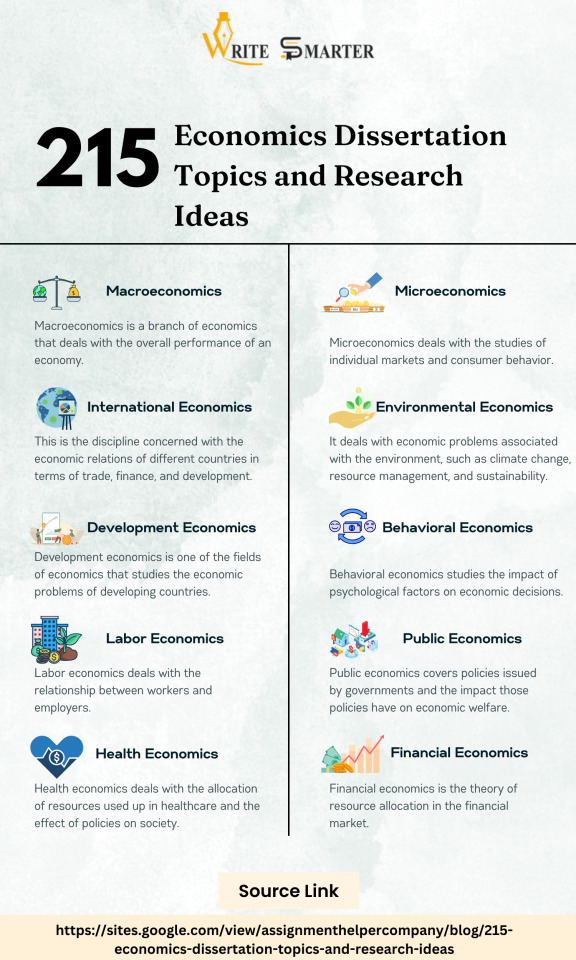
215 Economics Dissertation Topics and Research Ideas
To help you out, we have put together a list of 215 dissertation topicts and research ideas cutting across different subfields in the field of economics...
Source Link: https://sites.google.com/view/assignmenthelpercompany/blog/215-economics-dissertation-topics-and-research-ideas
#online dissertation help#economic assignment help#assignment help online#assignment writing services#assignment services#marketing assignment work
0 notes
Text
Why did we boycott Cuba?
So, I'm reading Dungeon Crawler Carl, book 6, which primarily takes place in Havana, Cuba. This morning it occurred to me to ask my autistic friend who knows a fuck ton of history... what the fuck really happened with Cuba & the U.S.? OH BOY, I got the full autistic info dump/dissertation. It was so glorious--I'm sharing it!
WTF Happened?
Batista was a Cuban military officer who rose to political power as part of a revolt that he staged in 1933- it was by all definitions a coup d'tat. He deposed a man called Carlos Manuel who was the President of Cuba at the time, and installed his new government of five men, referred to as 'The Pentarchy' that ruled as a coalition. The coalition controlled the 'Presidents' from behind the scenes, & they had several through the years, who were realistically, under the control of Batista & his coalition the whole time.
He later became President himself in 1940, and declared himself a military dictator in 1952. He was able to do this through financial & military support from the United States. In 1940, he suspended Cuba's Constitution & removed political liberties including the 'Right to Strike'
.. Stop me if any of this is starting to sound weirdly familiar 🙃
ANYHOOO.. Batista with all his money & power aligned himself with the wealthy land owners of Cuba to purposely widen the gap between poor & rich Cubans by enlisting the help of the American Mafia who controlled drug, gambling, & other lucrative businesses in Havana. People started to revolt, and he put censorship on media, and started to carry out state wide violence & public executions. In 1954, Batista's government held presidential elections, but no politician stood against him; the election was widely considered fraudulent. At this point Castro had already tried to overthrow Batista once, but with America backing Batista, it was a near impossible task & him & 25 of his men were captured & imprisoned. This is when shit really started to hit the fan & supporters of Castro, anti-Batista groups, across Cuba, carried out bombings and sabotage; Batista's police responded with mass arrests, torture, and extrajudicial executions.
One of Castro's top men, Sturgis worked with an American CIA agent to obtain BOATLOADS (literally) of ammunition to help them fight against Batista. Castro's guerrillas increased their attacks on military outposts, forcing the government to withdraw from the Sierra Maestra region, and by spring 1958, the rebels controlled a hospital, schools, a printing press, slaughterhouse, land-mine factory and a cigar-making factory. Influenced by anti-Batista sentiment among their citizens, the US government ceased supplying him with weaponry- Batista responded with an all out attack which aerially bombarded forested areas & civilian villages where they thought Castro & his men might be hiding out.
By this time the great majority of Cuban people had turned against the Batista regime- Ambassador to Cuba, E. T. Smith, who felt the whole CIA mission had become too close to the MR-26-7 (Castro's main forces) movement, personally went to Batista and informed him that the US would no longer support him and felt he no longer could control the situation in Cuba. General Cantillo, went against Batista & secretly agreed to a ceasefire with Castro. In suppressing the revolution, Batista's government had killed thousands of Cubans.
In 1959, Castro was sworn in as Prime Minister of Cuba & appointed himself President after Batista fled to seek asylum in the US (shocker). Immediately, Castro started working for the 'every day man'- Judges and politicians had their pay reduced, while low-level civil servants saw theirs raised, and in March 1959, Castro declared rents for those who paid less than $100 a month halved. The Cuban government also began to expropriate the casinos and properties from mafia leaders and taking millions in cash. Under Castro's leadership, Cuba actually became incredibly successful economically.
So..... you might see why America might have wanted to make Castro sound like the bad guy... cause if people knew the truth, they'd be pissed about what's going on right now. Cuba actually has, to this day, some of the BEST DOCTORS ON THE PLANET, and their scientists are incredibly well educated. Castro made sure that everyone was able to read, write, etc & invested a TON into the public's well being.
At this point, I declared that I wasn't sure I believed there ever was a real missile crisis... which my friend followed up with a quick wiki to sort that shit out too. (I love my friend so damn much.)
Soooo fun bit on that- we caused it 🙃
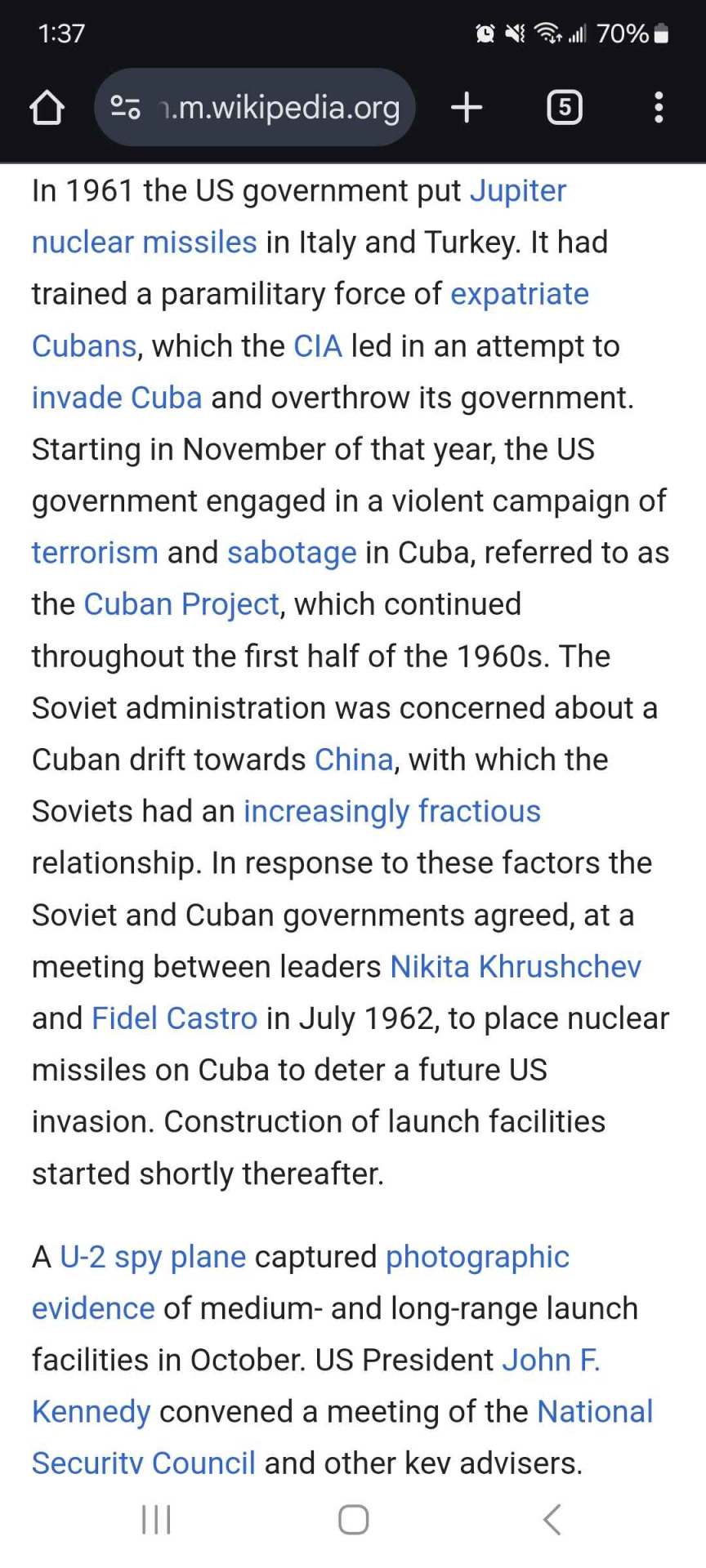
I consider this part of my contribution towards preserving historical data at a time when that's in jeopardy. Anyone else have a story time they want to share?
3 notes
·
View notes
Text
By: Roland Fryer
Published: May 9, 2024
The anti-Israel protests on college campuses present a puzzle for observers of academic norms and mores. Today, even relatively minor linguistic infractions, like the failure to use someone’s preferred pronouns, are categorized as abuse at many elite institutions, some of which even define potentially offensive speech as “violence.” One need not even speak to run afoul of campus speech codes; I recently participated in a training in which we were warned of the consequences of remaining silent if we heard someone “misgender” someone else.
Definitions of “harmful” speech have become so capacious that one assumes they include antisemitism. In some cases, they surely do: A university wouldn’t take a hands-off approach to a student or faculty member who expressed prejudice against Jews in the manner of Archie Bunker or the Charlottesville marchers. Yet that’s what many of them have done when faced with protesters’ speech that is offensive to Jews, even when it crosses the line into threats, intimidation and harassment.
At a December congressional hearing, the presidents of Harvard, Penn and MIT struggled to answer when Rep. Elise Stefanik (R., N.Y.) asked whether “calling for the genocide of Jews” violates the schools’ “code of conduct or rules regarding bullying and harassment.” Two of the presidents lost their jobs, but the central question remains unresolved: How could it be that the university is zealous about policing pronouns but blasé about the advocacy of hateful violence?
For someone who prides himself on adherence to fact, reason and rationality, trying to follow the logic of university decision-making over the past five years has been a mind-bending experience. But universities are also political entities, where competing interests vie for influence over the function and purpose of the institution. In the case of the protests, two competing interests have made themselves heard most loudly: students and faculty who are hostile to Israel and alumni donors who see the protests as antisemitic. Caught between them are administrators, who must figure out how to balance these interests without entirely losing the faith of either group.
This dynamic can be explained by economic theory. In the early 1970s, economist Michael Spence introduced the concept of signaling, which has since become one of the foundations of information economics and earned Mr. Spence the 2001 Nobel Memorial Prize in Economics. This seminal concept helps explain how individuals and organizations communicate their attributes or intentions in situations of information asymmetry.
The best-known application is the job market. Employers and potential employees face a situation in which applicants have more information about their productivity than the employer, since the employer can’t directly observe those qualities before hiring. To overcome this asymmetry, job seekers engage in signaling—taking actions that can credibly convey information about their abilities. Such signals include everything from educational credentials to the way the applicant dresses for an interview.
When I encountered Mr. Spence’s model in graduate school, I was mesmerized. My doctoral dissertation extended his work to understand underinvestment in education in some black communities. The basic economics also seem applicable to what’s going on now on college campuses.
The key idea is that the protests present university administrations with a two-audience signaling quandary: Behaviors that appease students may anger alumni, and vice versa. Like a job applicant’s potential productivity, university administrators’ political preferences are hidden from students and alumni, but they may signal them in various ways. They may choose a liberal commencement speaker rather than a conservative one, they may create programs that emphasize “inclusiveness,” and so on. Students and alumni observe these strategic disclosures of preference, and each group decides whether to accept the decision or agitate against it.
University administrators whose preferences align most closely with their alumni will ignore the students and simply do what they think is best, as the University of Florida’s president did when he banned encampments and declared that the school is “not a daycare.” Those whose views align with the protesting students will do the opposite.
But most top administrators don’t have such strong preferences. They will engage in a high-wire act of trying to appease both students and alumni. If students decide “safety first” is the most important initiative on campus, administrators—even if they disagree—will adopt stances consistent with that and hope the alumni don’t revolt too much. If a few months later students set up encampments and chant anti-Israel slogans, then administrators will also adopt stances consistent with that and, again, hope the alumni don’t complain too much.
The congressional hearings revealed that this signaling strategy was at work. The three presidents would risk alienating students if they disavowed anti-Israel slogans and alumni if they endorsed them. So they offered lawyered-up equivocations that signaled confusion and weakness.
Economic theory can explain why the situation on so many campuses has spiraled out of control and why no interested party—neither students nor donors nor seemingly anybody else—has anything good to say about how administrators are handling the protests. But economics can’t address the more essential issue at play, which is moral. Elite universities decided years ago that they would adopt a basic principle: Any speech act that attacks, questions or even declines to affirm the self-understood identity of another constitutes harm worthy of punishment.
I may not like that principle, but it’s now a fait accompli. And if you’re going to punish one person who violates it, you have to punish everyone who violates it. To permit attacks on one identity group while prohibiting attacks on others is worse than hypocrisy—it is profoundly immoral. If administrators had the courage of their stated convictions, if they had principles rather than merely gestures meant to signal their status as good liberals, the most egregious antisemitism on campus would have been stopped before it could snowball.
Mr. Fryer is a professor of economics at Harvard, a founder of Equal Opportunity Ventures and a senior fellow at the Manhattan Institute.
#Roland Fryer#economic theory#signaling#antisemitism#anti israel#campus protests#student protests#alumni#higher education#israel#student violence#campus violence#religion is a mental illness
4 notes
·
View notes
Text
Every GK Question Paper Be Like #memes #funny #comedy #exam . Best Affordable Online Academic Assignment Writing Help Service From AHECcounselling . You can get Top Class Assistance From Expert Writers Of AHECounselling & Submit Your Project With The Best Content. . Our Best Specialised Subjects 🔰 Business Studies, 🔰 Management, 🔰 Marketing, 🔰 Accounting, 🔰 Finance, 🔰 Economics, 🔰 Research proposal, 🔰 Thesis statement, 🔰 Literature review, 🔰 Dissertation, 🔰 Programming, 🔰 Psychology, 🔰 Sociology, 🔰 Engineering, 🔰 Project Management, 🔰 Statistics, 🔰 Law, 🔰 History, 🔰 Computer Science, 🔰 Pharmacy, 🔰 Biosciences, 🔰 Nursing, 🔰 Lab reports, 🔰 Financials statement, . We are available 24/7 to help you and to give our 💯%. E-mail 📧:- [email protected] Whatsapp number- +91 92148 59550
#meme#funnyvideo#student#india#schooljokes#sarcasm#jokes#engineering#students#college#collegelife#studentlife#funnymemes#funnyvids#universitylife#university#bassi#standupvideo#standup#comedy#zakirkhan#anubhavsinghbassi#upsc#harshgujral
2 notes
·
View notes
Text

Hello, Scotland university and college students! 👋
Are you struggling with your assignments? Do you need professional help to ace your exams? Do you want to save time and money while getting the best grades?
WhatsApp Group Link: CLICK HERE
If you answered yes to any of these questions, then you need Assignment Help Experts UK/USA/CANADA WORLDWIDE! 🙌
We are a team of experienced and proficient tutors who can help you with any academic task. Whether you need assistance with essays, online exams, dissertations, proposals, research papers, creative writing, or any other subject, we have got you covered! 🙌
We have expertise in various disciplines, such as engineering, business, economics, IT, law, psychology, history, philosophy, sociology, and many more. We can solve all assignments of AUS, UK, Canada, Ireland, Germany and USA universities. We know how to score well in all universities. Perfect knowledge of referencing is our key to success. 🚀
We guarantee you:
- 💰 30% discount on your first order
- 💸 100% money back if you are not satisfied
- 🕒 On-time delivery of your work
- 📝 High-quality writing that is plagiarism-free
- 📊 Free Turnitin report to prove originality
- 🔧 Revision facilities to ensure your satisfaction
- 📞 24/7 availability and support
Don't stress over your assignments anymore. Let us handle them for you and deliver the best results. Contact us today by clicking the link below and get a free quote. 😊
Some of the universities and colleges we can help you with are:
- University of Edinburgh
- University of St Andrews
- University of Glasgow
- University of Aberdeen
- University of Dundee
- University of Strathclyde
- Heriot-Watt University
- University of Stirling
- University of the West of Scotland
- Edinburgh Napier University
- Robert Gordon University
- Glasgow Caledonian University
- Queen Margaret University
- Abertay University
- University of the Highlands and Islands
- Royal Conservatoire of Scotland
- Glasgow School of Art
- SRUC Scotland's Rural College
- New College Lanarkshire
- City of Glasgow College
#college#assignment help#a+#essay writing#home tutors#essay#assignmentexperts#assignmentwriting#physics#discussion#scotland#research paper#dissertation#mba#mbacollege#online tutoring
2 notes
·
View notes
Text
Replacement thoughts for the nuance:
-Seeing the nude human body is inherently traumatic Everyone is naked under their clothes, and the human body that we all have, that we all see in ourselves, should not be seen as inherently traumatic. Dysphoria and such exists, sure, however, society has never been comprised of incorporeal personalities - all humans have bodies - and we should stop pretending that some bodyless society is the norm.
-Sex scenes in art are pointless Sometimes sex scenes in art are gratuitous and only there to tempt those looking for porn, sometimes sex scenes are a plot point, sometimes the sex scene falls in between the two. Viewer discretion is advised (aka check the warnings/tags and curate your own experience).
-Wearing kink-related clothing in public is the similar to performing a sex scene in front of unwilling participants Outfits that expose genitalia and are being put to use at Folsom? Yeah, definitely sex related. Swapping out your denim blue jeans for leather pants and NOT going around giving a full dissertation on how the leather makes you/your partner feel? No, the pants are just pants, and the material should not be such a big deal, stop trying to create society-wide uniforms.
-Depicting female characters expressing sexuality is always degrading I don't know how to make this simpler, but women are just as human as men and generally also have thoughts just like men do, and sometimes voice them just as men do. Men, women, non-binary ... we are all human and should not be treated as separate species or as infants in adulthood.
-People's sexual fantasies are always an endorsement of the behavior they want to see in real life As a kid, I fantasized about being a dragon, because 'ooo, pretty'. This never meant I actually expected to become a real-life dragon. Look back at your own life, and you'll likely find something similar. There's a reason the meme of a cat clinging to a wall above a door with the caption 'They said I could be anything, so I became a security camera' was funny. Not all dreams come true, nor are all dreams meant to come true. People are allowed to be silly, it's not that serious.
-Sex work is more traumatic and coercive than other types of work Some people enjoy sex and don't care who they have it with, or are at least less picky about who they have it with. If they find that people are willing to pay them as they indulge in their own personal enjoyment, they may take that money as part of a perfectly fair exchange. Not all sex work involves human trafficking, just as not all human trafficking involves sex. The problem isn't the sex or the sex work, the problem is economic and about how we treat other people under the current classist system in general, aka the work and how workers are treated.
-Sex in a monogamous romantic relationship is somehow morally/fundamentally different from sex outside of romance and/or monogamy. Seeing as even the Bible refers to multiple definitions of what we call marriage, including taking a woman as your wife if her husband dies and you were her brother-in-law, or if you killed her husband on the battlefield, or if you already own her as a slave, this absolutely doesn't even fit with people citing the Bible as their source of morality, which is where that nonsense started. If you are not part of the consentual relationship between the adults in question, then you are not part of that relationship and your opinion does not matter. Deal with your own relationship(s) or lack thereof and get your nose out of everyone else's personal business.
-Some clothing is inherently sexual. The clothing is not alive. It is not sentient. It has no opinion, thoughts, wants, or desires. Any sexuality you see in that clothing is what YOU have chosen to see. The clothes are not the problem. Your inability to get your mind out of the gutter is the problem. Trying to mandate some uniform clothing standard for society will solve nothing. On the other hand, seeking help with your own need to over-sexualize everything and take everything personally might make a world of difference. 'Hypersexual disorder' is still a thing (https://pubmed.ncbi.nlm.nih.gov/19937105/), and claiming non-sexual things are 'inherently sexual' is a listed symptom (this is not a diagnosis and I am not your therapist or psychologist - this is merely something to take into consideration).
Case in point: I have Mormon neighbors who fret over bare shoulders, considering the uncovered shoulders to be risque and inherently sexual. I've lived in places where nobody cared about bare shoulders at all, and still live under the same idea that bare shoulders are just something that happens when it's hot outside and maybe wear sunscreen. We are not the same. I do not see tank tops as any more sexual than the completely non-sexual prairie dresses that many FLDS wear, I do not carry around the same cultural baggage that my neighbors do.
TL;DR Stop believing all the sensationalist crap you see in internet discourse. Stop claiming your own failings are society's fault. Sometimes society is wrong, sure, but sometimes it's just certain individuals who are wrong and you may be one of them.
Lines of thought that seem Normal but are actually rooted in extreme puritanism:
-Seeing the nude human body is inherently traumatic -Sex scenes in art are pointless -Wearing kink-related clothing in public is the similar to performing a sex scene in front of unwilling participants -Depicting female characters expressing sexuality is always degrading -People's sexual fantasies are always an endorsement of the behavior they want to see in real life -Sex work is more traumatic and coercive than other types of work The goal is to treat sex as just another thing people do. That is a much healthier attitude than hiding it! It's not uniquely traumatic, it's not weird to talk about it or include it in society.
#calm down#leave your emotional baggage at the door OR get tf off my lawn#AI fails because it goes off pure logic (and not always good logic - programmers are not perfect)#likewise purely emotional arguments fail#think the entire argument through and reflect on places that seem shaky reasoning-wise#the people you've let think for you may not have your - or anyone's - best interests at heart#always second-guess their reasoning for yourself#this ofc requires that you have actual critical reasoning skills#and sadly not everyone has those skills#though they CAN be learned
85K notes
·
View notes